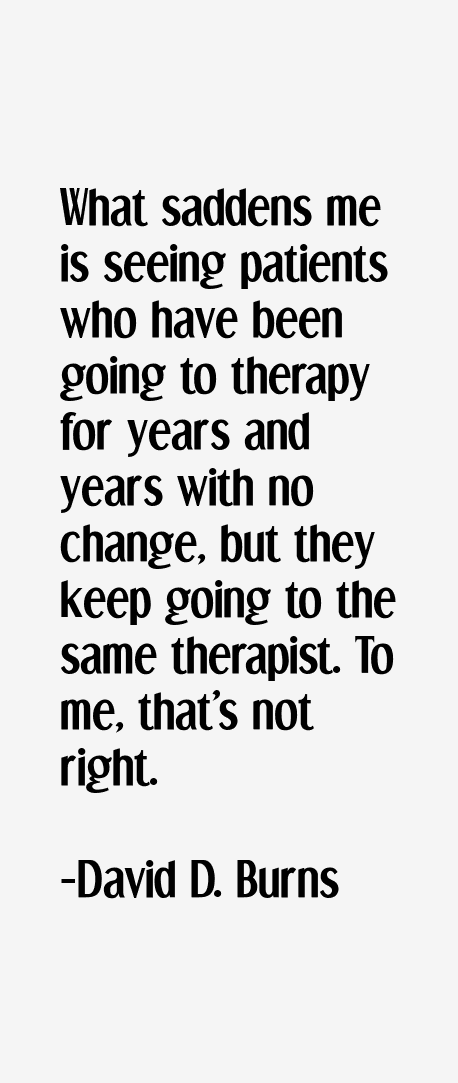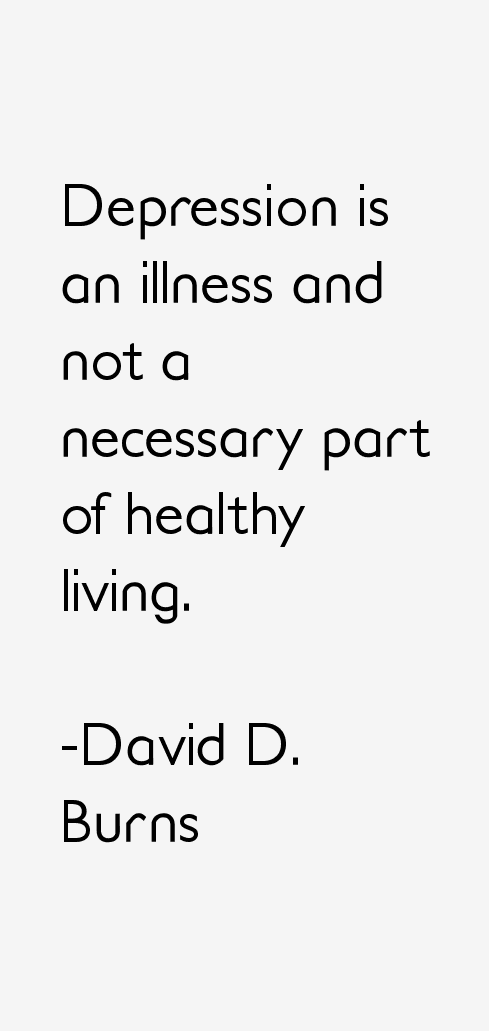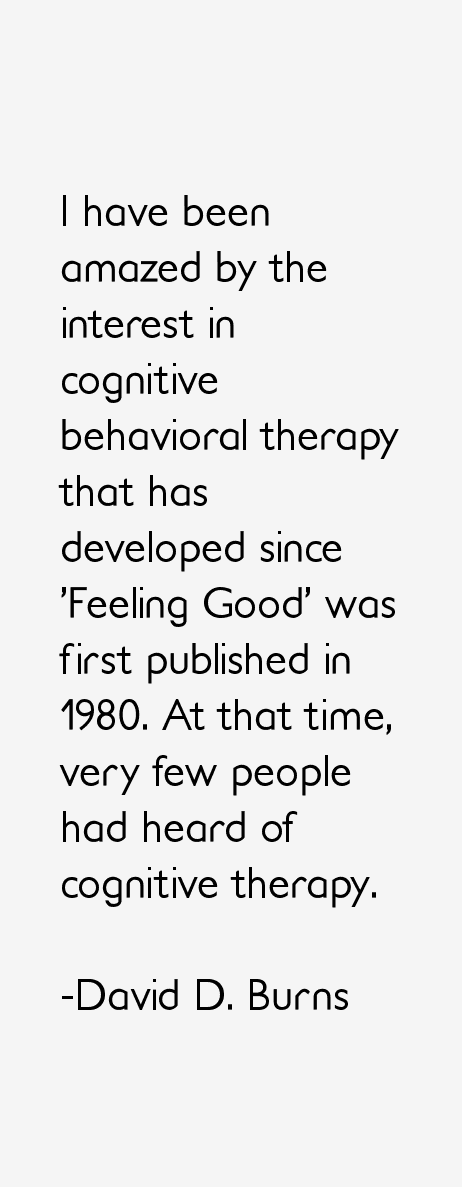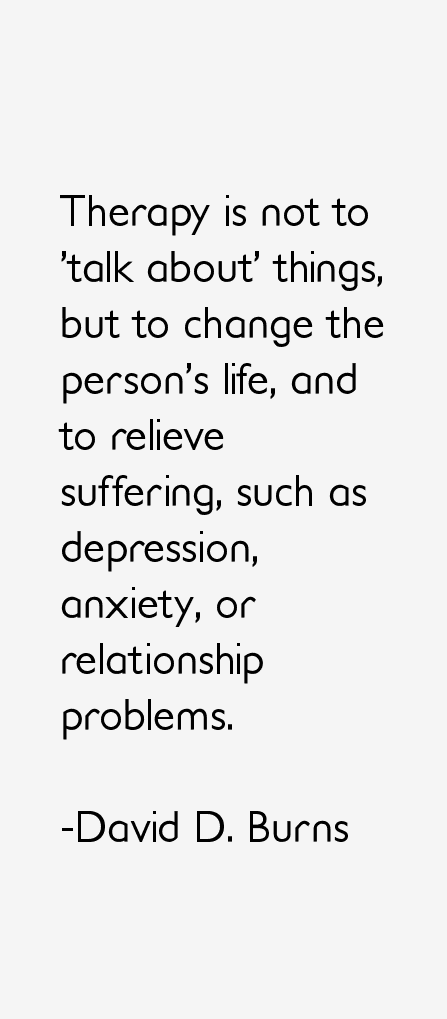David D. Burns Quotes & Sayings (Page 3)
David D. Burns quotes and sayings page 3 (writer). Here's quote # 21 through 30 out of the 33 we have.
“The stereotype of psychotherapy portrayed in popular books and movies is lying on the couch and saying whatever comes into your mind, while a kindly psychoanalyst listens and nods knowingly from time to time. After years and years, something wonderful is supposed to happen.”
“Cognitive therapy is a fast-acting technology of mood modification that you can learn to apply on your own. It can help you eliminate the symptoms and experience personal growth so you can minimize future upsets and cope with depression more effectively in the future.”

“Although no one treatment will ever be a panacea, research studies indicate that cognitive therapy can be helpful for a variety of disorders in addition to depression.”

“I'm all for 'tools,' not 'schools,' of therapy. To me, the schools of therapy compete much like religions, or even cults, all claiming to know the cause and to have the best method for treating people.”
“There is no 'ultimate goal of therapy.' Thinking there is some ultimate or universal goal of therapy is one of the most fundamental errors of our field. To me, that concept is rather arrogant, as if therapists were some kind of spiritual experts who knew what human beings are supposed to be like.”

“What saddens me is seeing patients who have been going to therapy for years and years with no change, but they keep going to the same therapist. To me, that's not right.”

“Depression is an illness and not a necessary part of healthy living.”
“Most therapists do not appear to know how to pinpoint and reverse therapeutic resistance - to head it off at the pass. Instead, they try to persuade the patient to change, or to do the psychotherapy homework, while the patient resists and 'yes-butts' the therapist. The therapist ends up feeling frustrated and resentful, and doing all the work.”

“I have been amazed by the interest in cognitive behavioral therapy that has developed since 'Feeling Good' was first published in 1980. At that time, very few people had heard of cognitive therapy.”

“Therapy is not to 'talk about' things, but to change the person's life, and to relieve suffering, such as depression, anxiety, or relationship problems.”
David D. Burns Quotes Rating
No Ratings Yet
Leave A Comment
























